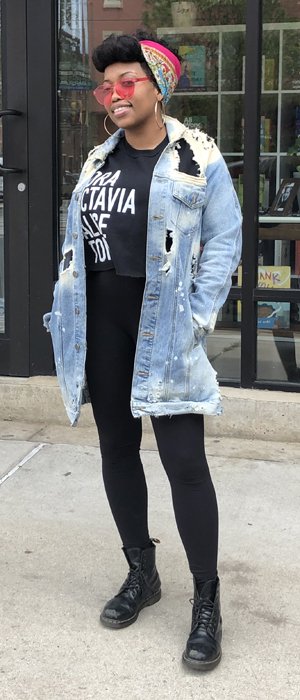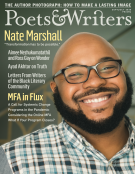The first time Jeannine A. Cook tried to open a bookstore, the building burned down just after she had signed the lease. Cook, however, was undeterred. As an arts educator and writer raised by a librarian, she finds books central to how she understands her place in the world and the impact she wants to make in it. In February, Cook opened Harriett’s Bookshop, which specializes in the work of Black and women authors. Philadelphia’s close-knit literary community was eager to welcome Harriett’s to the small but historic coterie of Black-owned bookstores in the city. But, as the saying goes, there are our plans, and then there is 2020. Six weeks after opening, Harriett’s had to temporarily close its doors because of the pandemic. Cook has nonetheless begun to establish Harriett’s as a vital part of the city’s literary and activist scene; in May and June she could be found handing out books from the shop to protesters during the Black Lives Matter demonstrations. Cook spoke about how she and Harriett’s have weathered quarantine, the Black women artists and thinkers who have shaped her mission, and how books can be a vital part of liberation work.

Jeannine A. Cook (Credit: Brianna Bolden)
What you were doing before you opened Harriett’s?
When I was in college I had a club called Positive Minds where we’d do outreach in the streets, teaching folks in the community how to use the arts as a tool for social change. I didn’t recall this until recently, but we actually sold books to raise money so that we could do these projects in the community. When I opened Harriett’s, a former classmate was like, “Wow, you’ve been doing this book thing for so long.” I had forgotten just how long.
What is your vision for the shop?
Toni Morrison said, “If there’s a book you really want to read, but it hasn’t been written yet, then you must write it.” There was a bookstore that I needed that I hadn’t found, so I decided I was the one to make it a reality. I see it as a spiritual sanctuary, a facilitative space where people can congregate and find communion. The decision to do this under the name of Harriet Tubman was about celebrating Black women specifically.
What was lockdown like for you as someone who had just opened a business?
In general it has been a lesson in how to pivot, how to be in the present and not think too much about the future or the past, because I don’t have those answers. I have what I have today, and I have to figure out how to make it work.
How are you and Harriett’s connecting with the Black Lives Matter movement?
There’s no way we do the work we’re doing under the name of Harriet Tubman without being on the ground. I think Harriet Tubman is the ultimate in terms of how to do liberation work. At the protests we’ve been giving out an organizing skills guide and Emergent Strategy: Shaping Change, Changing Worlds by Adrienne Maree Brown. If you want to distribute books, if you want to make that part of your protest, reach out to us by e-mail. We have books that we can potentially send you.
Is there any one book you find yourself returning to often during times like these?
What I really don’t want to see happen is for us to commodify this movement and make it seem like if you read these “top five books” you now understand racism and you have the tools you need to undo it. It just doesn’t work that way. I’ve been suggesting books that aren’t on those lists—fiction, novels, poetry. One book that I keep returning to is Beloved by Toni Morrison. What she does in that book by asking the question “Would you prefer slavery or death?” is so profound. It makes the meaning of freedom much clearer.
Jennifer Wilson is a contributing writer for the Nation, where she covers books and culture. She lives in Philadelphia.








